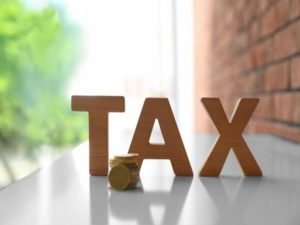If you are an expat living and working in South Africa, you may be liable to pay income tax. The South African income tax system is based on residency, meaning that residents are taxed on their worldwide income, while non-residents are taxed only on their South African-sourced income. The South African Revenue Service (SARS) collects income tax and uses the Pay As You Earn (PAYE) system to withhold taxes from monthly salary payments.
This article covers the key aspects of individual income tax in South Africa, including who pays income tax, what earnings are subject to income tax, how to file your tax return, income tax rates, and how to calculate income tax. It also includes information on income tax for expats, tax refunds, appeals, fines, and useful resources for income tax advice.

Earnings subject to income tax in South Africa
Taxes on income and salary in South Africa
In South Africa, income tax is levied on various types of earnings, including employment income, profits or losses from a business or self-employed trade, director’s fees, rental income, investment income, annuities, royalties, pension income, and certain capital gains. Employers usually deduct income tax from wage payments through a pay-as-you-earn or PAYE scheme.
Taxes on savings and investments
Individual taxpayers in South Africa are subject to tax on any interest earned on bonds or savings. However, there is an annual allowance of R23,800 for taxpayers below 65 years old and R34,500 for those 65 years and older. Any interest earned beyond the allowance is subject to tax.
Taxes on rental income
If you receive rental income in South Africa, you are required to declare it on your income tax return. While taxes apply to this income, you can deduct certain expenses such as agent fees, insurance, and advertising. It is important to declare all expenses to reduce the taxable rental income.
In addition to income tax, a separate dividend tax of 20% is imposed on dividend payments to shareholders. The company making the payment withholds this tax from the dividend payment.
Overall, South African taxpayers are required to declare all taxable income, including employment income, investment income, and rental income. It is important to keep accurate records of all expenses to reduce the taxable income. For more information, taxpayers can visit the SARS website.
How to file your tax return in South Africa
To file your tax return in South Africa, you must register as a South African taxpayer and have a SARS income tax number. Your employer typically does this for you. Once you have your SARS income tax number, you can complete your tax return on paper or online. To complete a South African tax return online, you must also register for eFiling.
Provisional tax return
If you receive an income other than an employment salary, you can pay your tax via the South African provisional tax system. This is done to spread the tax liability across the year. You will pay two upfront instalments during the year based on estimated taxable income. The final balance owed will then be submitted along with the tax return form.
Income tax deadlines in South Africa
The current South African tax year runs from 1 March 2023 to 29 February 2024. The tax season, when people are required to file their income tax returns, is typically from July to November, depending on the tax filing method. Check the SARS website for the most up-to-date tax deadlines.
Income tax forms in South Africa
The South African income tax return for individuals is called form ITR12. To complete the form, you need to have your bank statements, information on all forms of income and allowances/deductions you include in the form, your tax number, your employee tax certificate (IRP5/IT3a), if applicable, certificates (IT3b) for any investment income, and a medical aid certificate for details of contributions made that do not appear on your IRP5/IT3a certificate.
You can obtain a paper copy of the form from your local SARS office. Alternatively, you can complete and submit it to SARS via the following channels:
- eFiling on your computer – simply register for eFiling at www.sarsefiling.co.za
- The SARS MobiApp from which you can complete and submit your Income Tax Return (ITR12).
Information on the filing season and how to file your income taxes can be found on the SARS website.
Income tax rates in South Africa
Income tax brackets in South Africa are progressive. Therefore, the more an individual earns, the higher the income tax rate. The income tax brackets in South Africa for the 2022 tax year (1 March 2022 to 28 February 2023) are as follows:
Age-based thresholds
There are different income thresholds for certain age groups, up to which earnings are exempt from SARS income tax. For 2022, these were:
- R91,250: for individuals under 65 years of age
- R141,250: for individuals aged 65 to below 75 years
- R157,900: for individuals aged 75 years and older.
In 2023, the thresholds are:
- R95,750: for individuals under 65 years of age
- R148,217: for individuals aged 65 to below 75 years
- R165,689: for individuals aged 75 years and older.
Personal tax allowance and deductions in South Africa
Certain forms of income are exempt from tax in South Africa. Tax residents can make the following deductions from their taxable income in South Africa for the 2023 tax year:
- Tax threshold allowance of R95,750 (R148,217 for those aged 65–74 and R165,689 for those aged 75 and over)
- Medical tax credit of R364 per month (plus R364 per month for the first dependent and R246 per month for each additional dependent)
- Exemption on interest payments up to R23,800 (R34,500 for those aged 65 and over)
- Tax relief on retirement lump sum benefits up to a total of R500,000 across a lifetime
- Tax relief claims against work-related travel and vehicle allowance
- A tax-free allowance for settling in costs up to one month’s basic salary for relocation costs may be provided in some cases where an employee and their family are relocated to South Africa for employment purposes.
Self-employed income tax allowances in South Africa
Self-employed individuals are subject to income tax at the same levels as employees, but there are a few deductions they may be able to claim, such as certain home office expenses.
It is important to note that they should hire a tax specialist for information that is more specific to an individual’s work and financial situation.
Calculating income tax
Manual calculations
If you do not want to use an online income tax calculator, you can manually calculate your South African income tax. Here are the steps:
- Determine your gross income, including all taxable income and employment-related benefits and allowances. For South African tax residents, this includes worldwide income, while non-residents only need to include income earned inside South Africa.
- Deduct any forms of exempt income as detailed in Section 10 of the 1962 Income Tax Act South Africa.
- Deduct all allowances and deductions to calculate your taxable income.
- Multiply your taxable income by your tax rate, which depends on your tax bracket.
- Subtract any owed rebates, including the annual rebate, any rebates from over-payments in past years, or applicable rebates for foreign taxes allowed by double-taxation agreements.
Once you have completed your ITR12 form and submitted it to SARS, your income tax will be assessed, and you will receive a Notice of Assessment (ITA34). This notice will detail any outstanding tax that needs to be paid.
For more information on completing your ITR12 form, you can find a guide on the SARS website (PDF).
Income tax in South Africa for ex-pats
Tax on pensions
Both South African residents and non-residents are not taxed on overseas pensions in South Africa. However, retirees receiving a South African pension in the country will be liable to pay tax on annual earnings above R128,650. Lump-sum payments above R500,000 are also subject to at least the minimum 18% tax.
The South African Revenue Service provides more information about taxes and retirement in South Africa.
Filing US taxes from South Africa
US citizens and green card holders are required to file a tax return with the IRS, even when living abroad. Many expats are unaware of these obligations and may think they do not need to pay or file tax returns in the US. However, this is not the case.
For more information and assistance with filing US tax returns from South Africa, refer to the guide on filing US taxes from abroad.
Tax Refunds in South Africa
In South Africa, tax refunds are not commonly received annually due to the PAYE system. Income tax is withheld from every paycheck,, and the amounts are reconciled at the end of the year. If an individual has overpaid or underpaid, it will be dealt with then. Therefore, receiving a bulky tax refund annually in South Africa is not common.
Fines in South Africa
Taxpayers who fail to submit their tax returns on time in South Africa may be subject to administrative penalties. These penalties range from R250 to R16,000 per month of non-compliance and can recur for up to 35 months. Additionally, a 2021 law makes taxpayers who are non-compliant due to negligence liable for criminal offences, which could result in a jail sentence of up to two years. For the latest information on tax return penalties, taxpayers should consult the SARS website.



Please I want baking